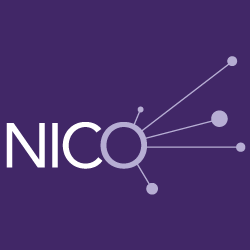Events
Past Event
Wednesdays@NICO Seminar: Re-Engineering Cities: The Role of Complexity Science
Northwestern Institute on Complex Systems (NICO)
12:00 PM
//
Lower Level Chambers Hall
Details
Wednesdays@NICO | 12:00-1:00 PM, January 27, 2016 | Chambers Hall, Lower Level
Sybil Derrible, Assistant Professor, Civil and Materials Engineering & Director, Complex and Sustainable Urban Networks (CSUN) Lab, University of Illinois-Chicago
Abstract
By 2100, the global population is forecasted to reach 10 billion, with the vast majority of people living in cities. At the same time, cities will drastically need to adapt to provide for their residents in a sustainable manner. In the words of Einstein: “We cannot solve our problems with the same thinking we used when we created them–, and we therefore need to come up with novel solutions to effectively address our problems, away from the current practice. In this talk, I will not provide these solutions, but I will discuss recent research produced at the Complex and Sustainable Urban Networks (CSUN) Laboratory that can provide us with valuable and insightful information about our current performance. First, I will talk about our work on urban road systems; we notably found that they seem to possess a coupled complexity feature consisting of one fractal component and one non-fractal component. Second, I will discuss a new tool that we are developing using network science to perform binless frequency analyses. We have applied the tool to World Bank data (life expectancy, GDP, and GHG emissions) to track the performance of individual countries over time and to make a composite triple bottom line index. Finally, I will discuss several research ideas in the works, including ideas on spatial reasoning, inspired by Christopher Alexander's seminal article “The City is not a Tree–.
Bio
Sybil Derrible is an Assistant Professor of Sustainable Infrastructure Systems at the University of Illinois at Chicago and the Director of the Complex and Sustainable Urban Networks (CSUN) Laboratory. He has a Ph.D. from the University of Toronto, and he was a Visiting Research Fellow at the Singapore-MIT Alliance for Research and Technology. Sybil was recently awarded a NSF CAREER Award for his project “Understanding the Fundamental Principles Driving Household Energy and Resource Consumption for Smart, Sustainable, and Resilient Communities–. His main research focuses on using complexity science, urban metabolism, and geographic information systems to create knowledge and generate methods to help design more sustainable and resilient urban engineering systems.
Time
Wednesday, January 27, 2016 at 12:00 PM - 1:00 PM
Location
Lower Level Chambers Hall Map
Contact
Calendar
Northwestern Institute on Complex Systems (NICO)
WED@NICO Winter Seminar Series returns on January 28th!
Northwestern Institute on Complex Systems (NICO)
12:00 PM
//
Lower Level, Chambers Hall
Details

The Wednesdsays@NICO speaker series will return for the winter quarter on January 28th, 2026, running through March 4th. Speakers will be announced in January!
Location:
In person: Chambers Hall, 600 Foster Street, Lower Level
Remote option: Zoom links will be provided
About the Speaker Series:
Wednesdays@NICO is a vibrant weekly seminar series focusing broadly on the topics of complex systems, data science and network science. It brings together attendees ranging from graduate students to senior faculty who span all of the schools across Northwestern, from applied math to sociology to biology and every discipline in-between. Please visit: https://bit.ly/WedatNICO for information on future speakers.
Time
Wednesday, January 28, 2026 at 12:00 PM - 1:00 PM
Location
Lower Level, Chambers Hall Map
Contact
Calendar
Northwestern Institute on Complex Systems (NICO)

